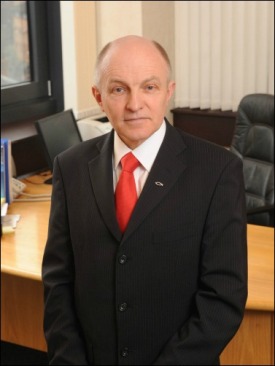Today is Holocaust Memorial Day. Seventy years on, we are still in shock by the extent to which an ideology based on hate and fear could cause so much suffering to men and women from so many backgrounds. Although primarily remembered as a Jewish Holocaust, we know all too well that many others who were considered different also suffered, people with disabilities, people of different sexual orientation and people of different races.

It is easy to say “not in my name” or “never in my generation” but intolerance has always been amongst us and it has been my personal view that none of are free from prejudiced thoughts, it is only that some of us are better able to contain those attitudes and not act upon them. Over time, we learn techniques to deal with any prejudiced thoughts when they arise. I feel that unless we recognise this human characteristic, we will find it too easy to see prejudice as something apart from us, something "they" do to “us”.
As we recall from the Holocaust, the prejudices we hold might have nothing to do with race, ethnicity or creed, but may, instead, be directed against gender, sexual orientation, age or disability. In our
awareness survey of 2011, I was amazed to discover that 37% of us “would mind” having someone with mental ill health as an in-law, but not surprised that a similar number expressed the same view about Travellers. Why did one shock me while the other didn’t? Surely prejudicial behaviour is just as toxic whatever person or opinion it is directed against?
So, given that human nature has not changed over 70 years, and that in this jurisdiction we have not had any serious policies or processes to address the fault-lines of our divided communities, we should not be surprised when we continue to see ongoing racist attacks in this place we call home. Not to be surprised should not, however, mean we should not be concerned. There is a danger that we become numbed, anaesthetised almost, by what has almost become the normal daily record of sectarian or racist acts which take place, often in the name of this ideology or that political viewpoint. We end up as passive bystanders, morally complicit in immoral acts by our silence.
So we can’t say we don’t know there is a problem, that we are in danger of building our new, united community on tectonic plates hewn out of centuries of bitterness and confrontation, which continue to move and rub up against one another as they vie for pre-eminence. If we are serious about this construction project, we need to make certain that we spend as much time, energy and money on ensuring that the foundations have been secured as we do on the new structures. It is not enough to name the problems, tweet about them or post angry paragraphs, however therapeutic that might be. Our words are important, but our actions outlive them. So what can we resolve to do to ensure more generations, those born in 2015 who will grow up with more multiculturalism than those of us born before the 90s have experienced, do not have to grow up in a society which appears to place more emphasis on winning than sharing or on making sure “our side” is vindicated, than being concerned that all of society moves ahead.
When we attack those who choose to journey with us here, whoever that is, however well earthed we might believe our views to be in our philosophy, ideology or theology, we diminish ourselves as well as them. Fear of the other comes from a lack of understanding about “their world”. We do not need to agree with someone to travel with them. Such an approach is costly, but is worthwhile as it builds relationships and can change attitudes, something that laws cannot do on their own.
Posted on 27 Jan 2015 by
Dr Michael Wardlow